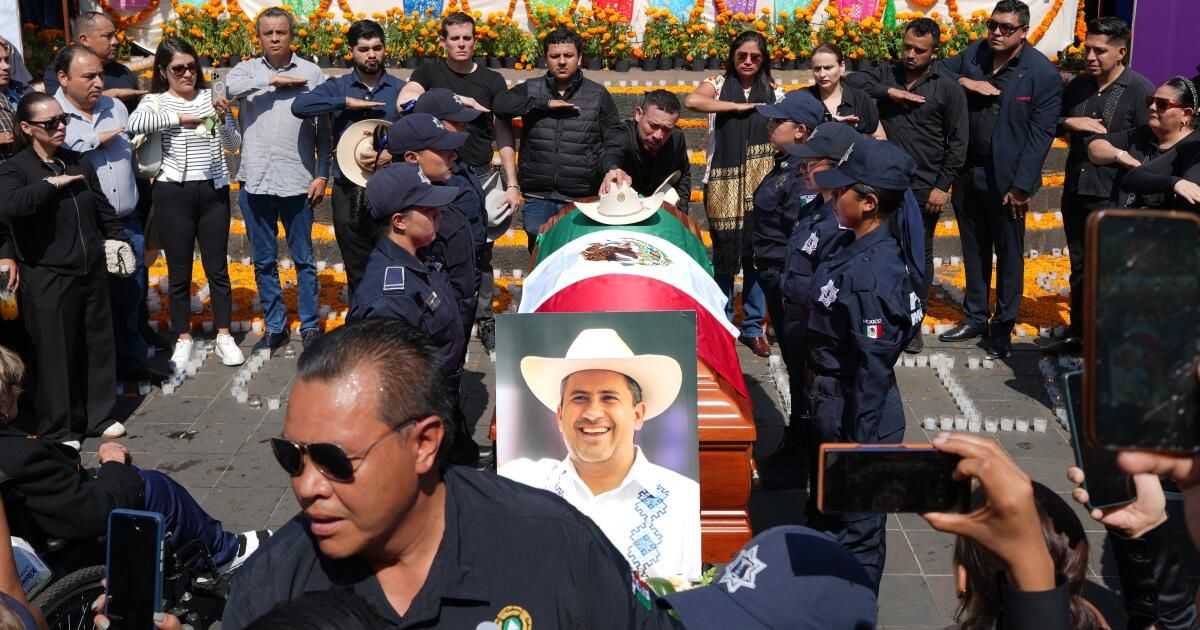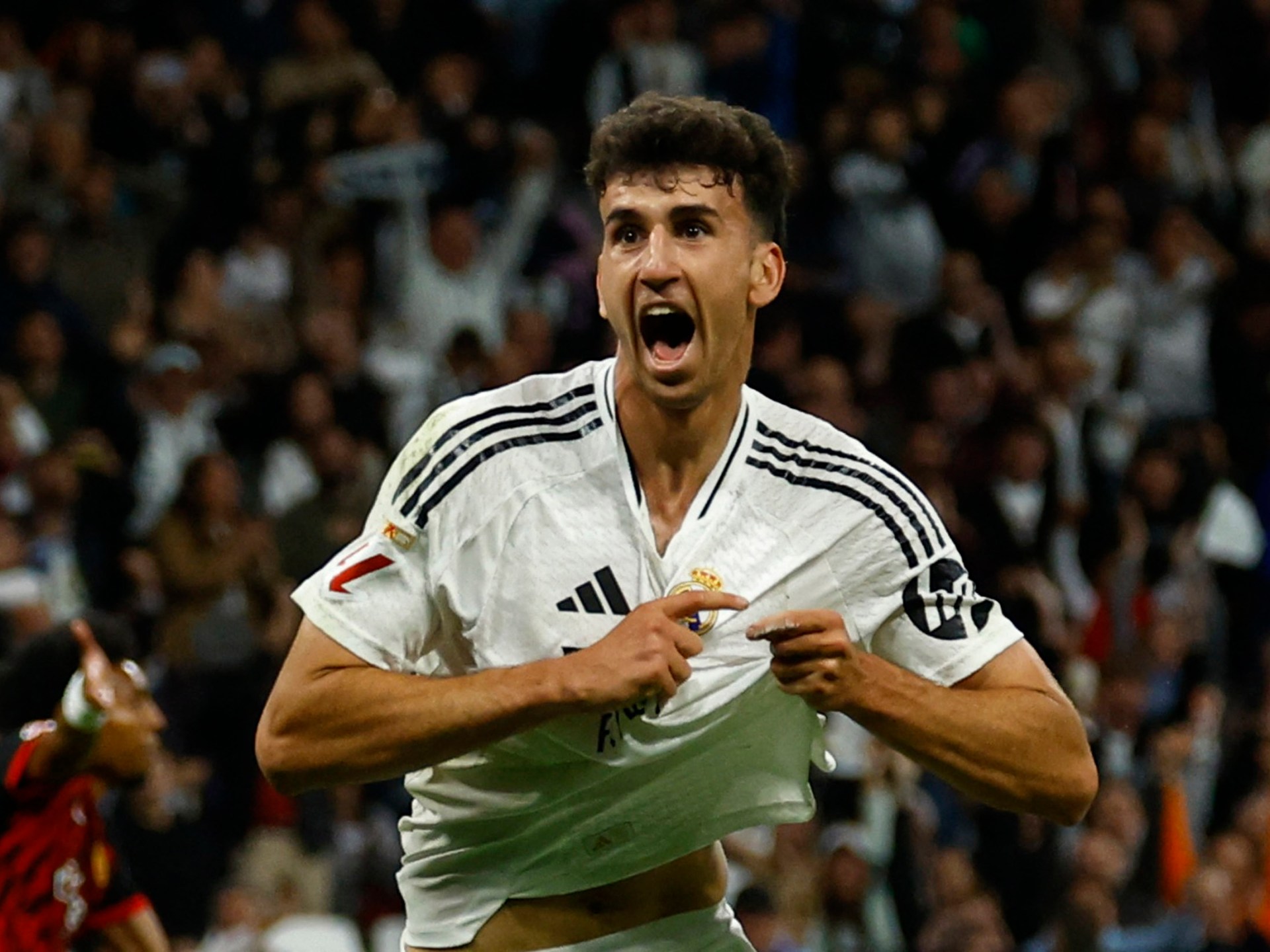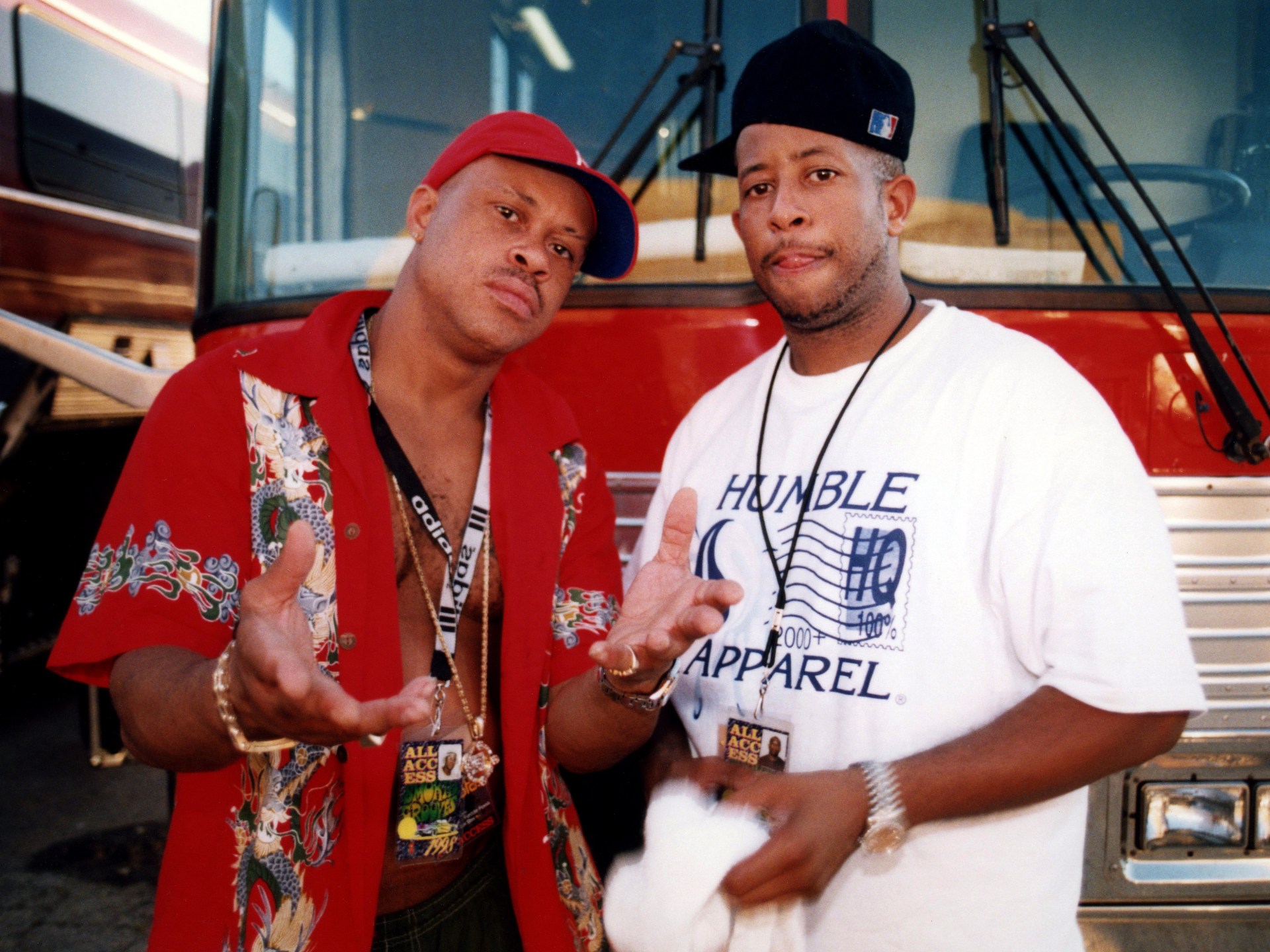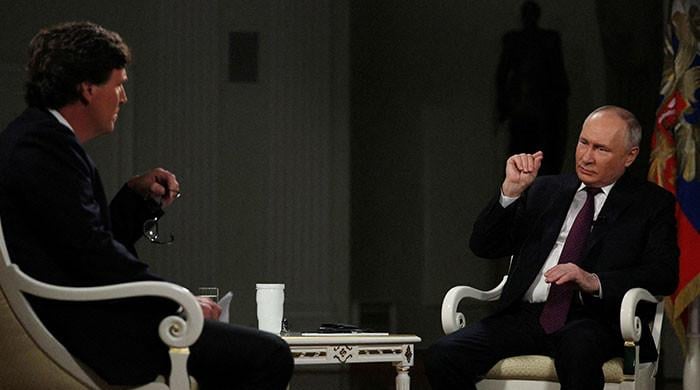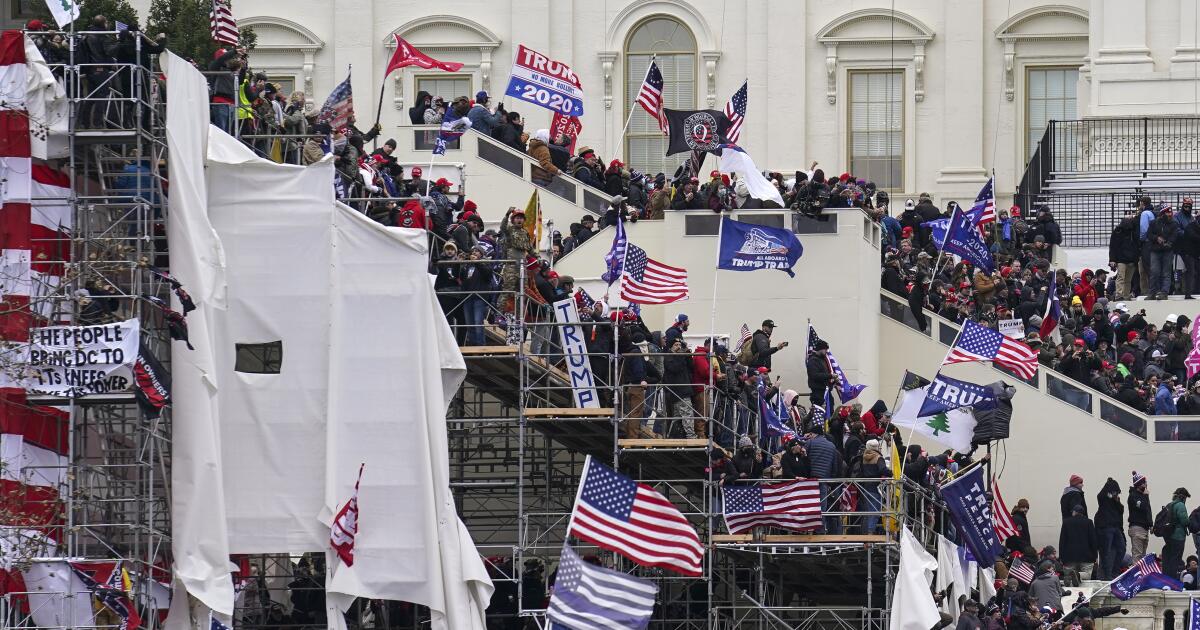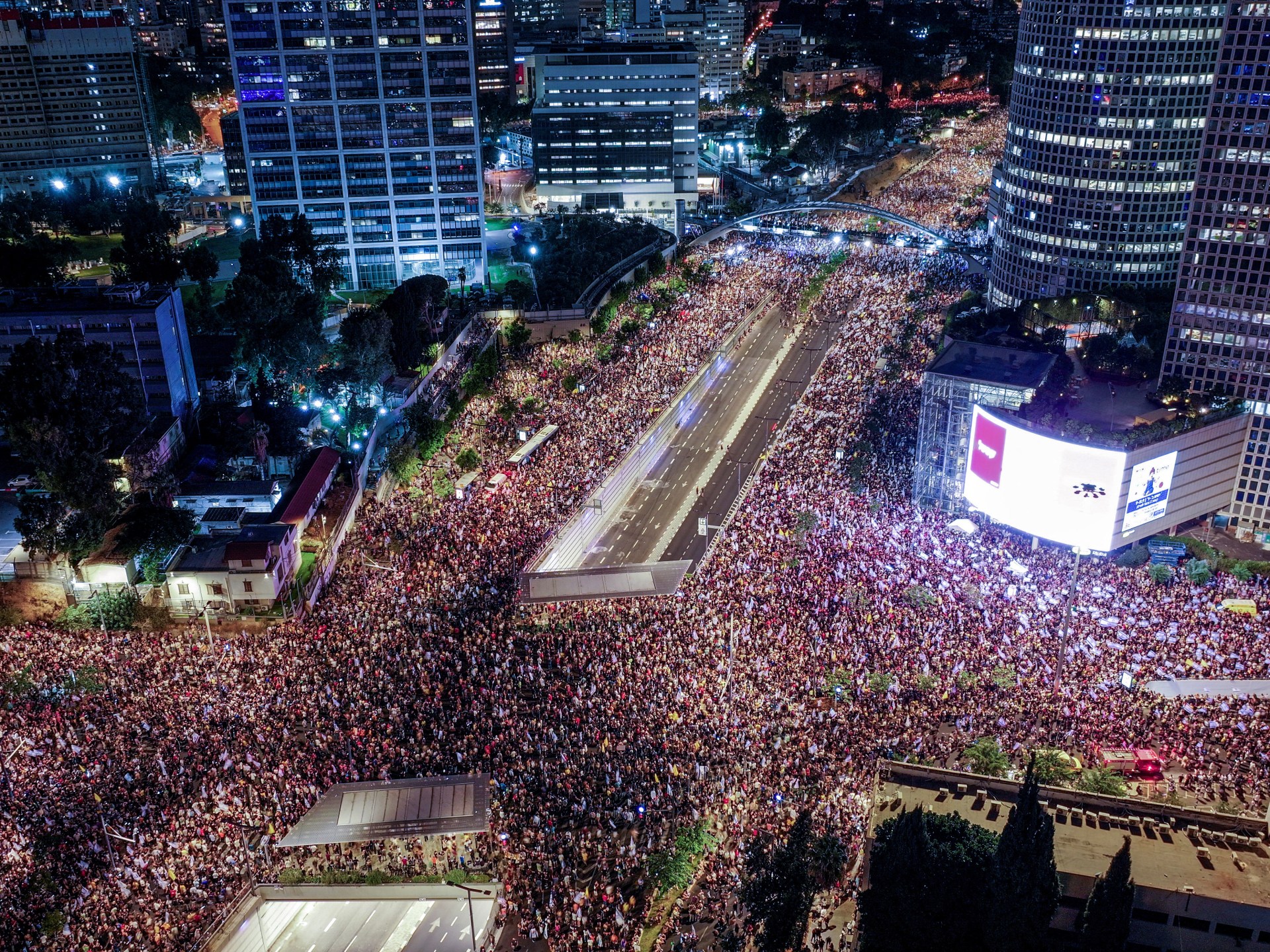MEXICO CITY — Carlos Manzo was famous in Mexico for saying what few politicians would say: that the cartels operated with impunity and should be confronted with brute force. Manzo, mayor of a city in an avocado-growing region beset by crime and violence, suggested that authorities should beat criminals into submission, or simply kill them.
It was a provocative message that resonated in some quarters of a country long afflicted by the bloodshed of the drug war. Many here saw Manzo, in his trademark white cowboy hat, as a hero.
But his heavy-handed rhetoric and criticism of the federal government's security strategy also made him enemies. Manzo recognized him and said he knew he could be a target for organized crime. “I don't want to be just another murdered mayor,” he said last month. “But it's important not to let fear control us.”
Manzo, 40, was shot to death Saturday night while presiding over a public Day of the Dead celebration in a central plaza in Uruapan, a city of 300,000 people in the western state of Michoacán. One suspected gunman was killed and two others were arrested.
The murder, captured on video, sparked outrage throughout Mexico and Washington.
Mexican President Claudia Sheinbaum, with whom Manzo often argued about security issues, lamented an “irreparable loss.” US Deputy Secretary of State Christopher Landau posted a photo of Manzo smiling and holding her young son moments before the attack. “The United States is willing to deepen security cooperation with Mexico to end organized crime,” Landau wrote.
Manzo was part of a new wave of leaders across the Americas who have called for a tough line against criminals.
It is a club that includes President Nayib Bukele of El Salvador, who has locked up tens of thousands of people accused of gang ties, with little or no due process, and President Trump, who has pushed for a more militaristic approach to fighting cartels, saying the United States should “wage war” on drug traffickers.
The U.S. military has killed 65 people in recent months it alleges were smuggling drugs in the Caribbean and Pacific, including several attacks off the coast of Mexico. Trump administration leaders have warned of the possibility of U.S. attacks on cartel targets on Mexican soil.
Calls for violent measures against organized crime are at odds with the security strategy adopted by Sheinbaum and his predecessor, Andrés Manuel López Obrador. Both emphasized the need to address the root causes of violence, including poverty and social disintegration.
López Obrador, especially, promised to break with the confrontational approaches of past Mexican administrations, whose military operations he said failed to weaken the cartels and only fueled the violence. What Mexico needed, López Obrador often said, were “hugs, not bullets.”
Manzo, who began in politics as a member of López Obrador and Sheinbaum's Morena party but later became independent, fiercely criticized that mantra.
“Hugs… are for Mexicans who live in extreme poverty,” Manzo said. “Criminals, murderers… they deserve beatings and all the force of the Mexican State.” He encouraged Uruapan police officers to use lethal force against criminals who resist arrest.
The mayor frequently criticized Sheinbaum for not doing more to confront the cartels, even though there has been a decrease in homicides and an increase in drug seizures and arrests since she took office. Sheinbaum has said security in Mexico depends on reinforcing the rule of law, including giving suspects a fair trial.
The son of a community activist, Manzo became mayor of Uruapan in 2024. The city has been the scene of some of the worst atrocities of Mexico's drug war — kidnappings, bombings, bodies hanging from highway overpasses — as a volatile mix of criminal groups fight for control of trafficking routes and profits from the lucrative avocado industry.
Manzo appeared with his family on Saturday at a crowded public event in Uruapan's central plaza to commemorate the Day of the Dead holiday. She posed for photos with her fans and livestreamed the candle lighting event on social media, sending “blessings to everyone.”
When a journalist asked about security at the event, Manzo responded: “There is a presence of different levels of government, we hope that everything goes well, is peaceful and that you enjoy the evening.”
Minutes later, shots were heard and then screams. Manzo lay on the ground, bleeding. Nearby was his white cowboy hat.
Security consultant David Saucedo, who said Manzo was accompanied at the event by local police and 14 members of Mexico's national guard, described the killing as a “kamikaze attack,” saying it was clear the shooter would be killed.
Manzo, Saucedo said, had been “brave but reckless” in his attempt to confront organized crime. “Carlos lacked the human, financial and material resources to defeat the cartels,” Saucedo said. His murder “makes it clear that even with political will, defeating the cartels at the municipal level is an impossible mission.”
The murder of the mayor was the latest in a series of violent incidents in Michoacán. Last month, authorities announced that they had discovered the body of Bernardo Bravo Manríquez, the leader of an association of lemon producers who had repeatedly reported extortion claims against agricultural producers.
Cecilia Sánchez Vidal of The Times' Mexico City bureau contributed to this report.

